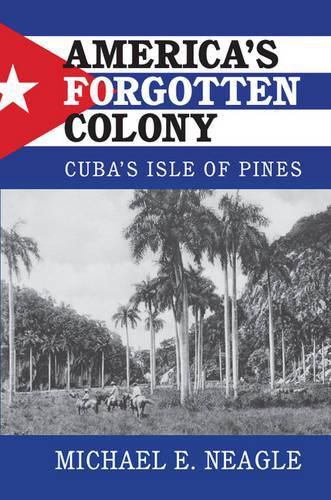Readings Newsletter
Become a Readings Member to make your shopping experience even easier.
Sign in or sign up for free!
You’re not far away from qualifying for FREE standard shipping within Australia
You’ve qualified for FREE standard shipping within Australia
The cart is loading…






America’s Forgotten Colony examines private US citizens’ experiences on Cuba’s Isle of Pines to show how American influence adapted and endured in republican-era Cuba (1902-58). This transnational study challenges the notion that US territorial ambitions waned after the nineteenth century. Many Americans, anxious about a ‘closed’ frontier in an industrialized, urbanized United States, migrated to the Isle and pushed for agrarian-oriented landed expansion well into the twentieth century. Their efforts were stymied by Cuban resistance and reluctant US policymakers. After decades of tension, however, a new generation of Americans collaborated with locals in commercial and institutional endeavors. Although they did not wield the same influence, Americans nevertheless maintained a significant footprint. The story of this cooperation upsets prevailing conceptions of US domination and perpetual conflict, revealing that US-Cuban relations at the grassroots were not nearly as adversarial as on the diplomatic level at the dawn of the Cuban Revolution.
$9.00 standard shipping within Australia
FREE standard shipping within Australia for orders over $100.00
Express & International shipping calculated at checkout
America’s Forgotten Colony examines private US citizens’ experiences on Cuba’s Isle of Pines to show how American influence adapted and endured in republican-era Cuba (1902-58). This transnational study challenges the notion that US territorial ambitions waned after the nineteenth century. Many Americans, anxious about a ‘closed’ frontier in an industrialized, urbanized United States, migrated to the Isle and pushed for agrarian-oriented landed expansion well into the twentieth century. Their efforts were stymied by Cuban resistance and reluctant US policymakers. After decades of tension, however, a new generation of Americans collaborated with locals in commercial and institutional endeavors. Although they did not wield the same influence, Americans nevertheless maintained a significant footprint. The story of this cooperation upsets prevailing conceptions of US domination and perpetual conflict, revealing that US-Cuban relations at the grassroots were not nearly as adversarial as on the diplomatic level at the dawn of the Cuban Revolution.